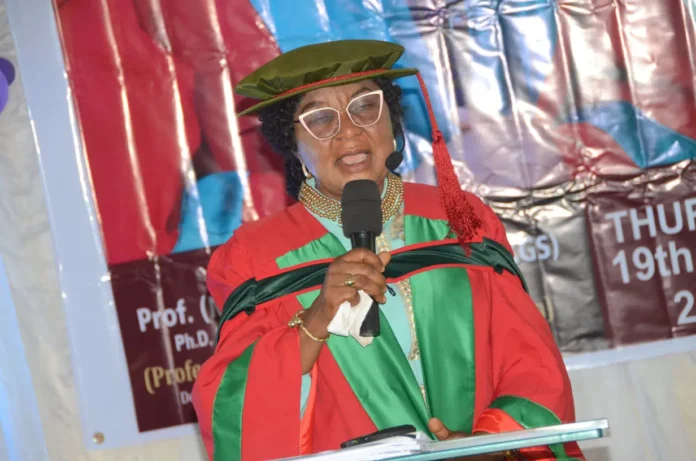Ngozi Alio, a professor of vocational teacher education, has outlined the main reasons why many Nigerian graduates cannot find jobs. Speaking at the 48th Inaugural Lecture of Enugu State University of Science and Technology (ESUT) in Agbani, Enugu State, she blamed insufficient staffing, limited funding, and outdated training facilities in tertiary institutions. Alio also highlighted that low and unchanging salaries for technical education staff lead to a shortage of skilled teachers. The lecture was held at the Barr. Peter Ndubuisi Mbah Multipurpose Hall, centered on the theme “Technology and Vocational Education as a Pathway for Self-reliance in the Informal Sector of the Economy: The Role of 21st Century Teachers.” She noted that graduates often need extra training in industries because their education, frequently based on obsolete equipment, does not match current workplace technology. Alio called for regular retraining of teachers to stay updated with innovations like Artificial Intelligence, Internet of Things, and Industry 4.0. She recommended improved teacher training, stronger ties with industries, and better oversight during education programs. Alio also stressed the need for frequent curriculum revisions to keep education relevant. To achieve self-reliance through vocational education, she urged upgrades to training facilities. ESUT’s Vice Chancellor, represented by Deputy Professor Chike Nwoha, encouraged professors to mentor students to create lasting value. He also warned future lecturers against seeking funds for inaugural lectures on social media, stressing that these events are university efforts to enhance academic standing. Professor Mellitus Ezeamaenyi, Chairman of ESUT’s Inaugural Lectures Committee, said such academic events have boosted the university’s visibility and online rankings. The lecture included the presentation of N1 million and N500,000 cheques to Alio, donated by ESUT Governing Council Chairman Sir Chinyeaka Ohaa and council member Dr. Innocent Akuvue, respectively. The event drew academics from ESUT and other institutions, government officials, traditional rulers, and religious leaders linked to Alio’s roles in diocesan education boards.

